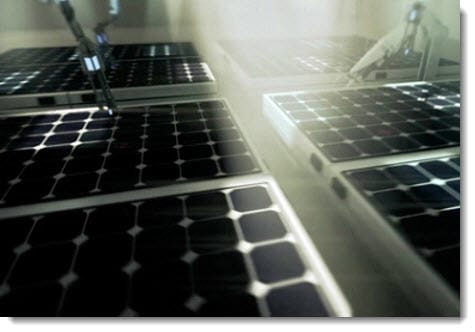Hydrogen storage problem may be solved with enzyme research
November 5, 2012Hydrogen storage continues to be a problematic issue for fuel cells
Efficient hydrogen storage has been a lingering problem that has stymied the acceptance of fuel cells. Though fuel cells are capable of producing a large amount of energy without releasing harmful emissions, they have received a great deal of criticism because of problems concerning storage. Current storage methods for hydrogen fuel are widely considered to be inefficient because of the significant amount of energy they require to be successful. Scientists with the Max Plack Institute for Chemical Energy Conversion at the Ruhr-Universitat Bochum in Germany may have found a solution to the problem of hydrogen storage.
Scientists experiment with hydrogenase enzyme
Scientists from the university have been investigating a particular enzyme that is capable of producing hydrogen called hydrogenase. This is not a new enzyme and has been the subject of research for several years. Hydrogenase enzymes often get a great deal of attention because of their ability to produce hydrogen in an efficient manner. Scientists from the university are interested in the enzyme because it may solve the hydrogen storage problem because of its unique structure.
Enzyme capable of storing hydrogen molecules
The enzyme boasts of a double-iron core, giving it the nickname of [FeFe] hydrogenase. In hydrogen production, two electrons are paired with two protons through catalysis. This process produces the electricity needed to generate hydrogen molecules. Researchers have shown that the transfer of the first electron through the hydrogenase enzyme occurs as normal. The second electron, however, is transferred to an iron-sulphur cluster that can store the electron in a “super-reduced” state temporarily. This electron can then be released later to produce hydrogen.
Storage and production problems may soon be a thing of the past
Researchers suggest that their tests with the hydrogenase enzyme shows that they could produce 10,000 molecules of hydrogen every second. Moreover, this hydrogen can be produced in an efficient manner, thus negating some of the concerns regarding energy consumption and the viability of hydrogen production methods. If this method can be commercialized, hydrogen storage may no longer be a significant problem holding back the acceptance of fuel cells.




 HFN News is your leading source for fresh hydrogen and renewable energy updates. Amid the fast-paced growth of hydrogen companies, we provide top-notch news and insights about this exciting sector. Our coverage spans from hydrogen cars to global sustainable initiatives, and we highlight the latest in green jobs and developing hydrogen hubs. We invite you to share your local hydrogen news and explore today’s renewable energy job listings on our site. Thanks for choosing HFN News as your trusted guide to the hydrogen and renewable energy world!
HFN News is your leading source for fresh hydrogen and renewable energy updates. Amid the fast-paced growth of hydrogen companies, we provide top-notch news and insights about this exciting sector. Our coverage spans from hydrogen cars to global sustainable initiatives, and we highlight the latest in green jobs and developing hydrogen hubs. We invite you to share your local hydrogen news and explore today’s renewable energy job listings on our site. Thanks for choosing HFN News as your trusted guide to the hydrogen and renewable energy world!